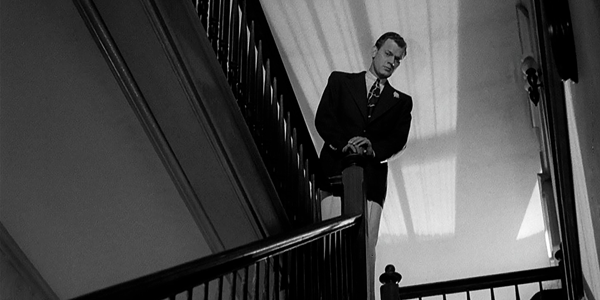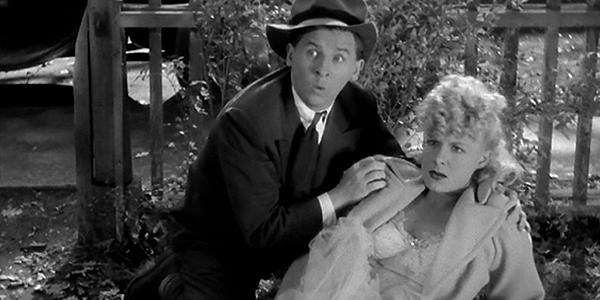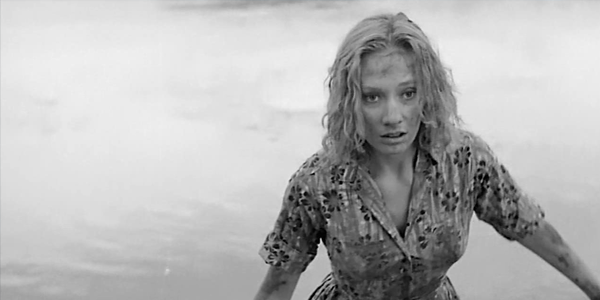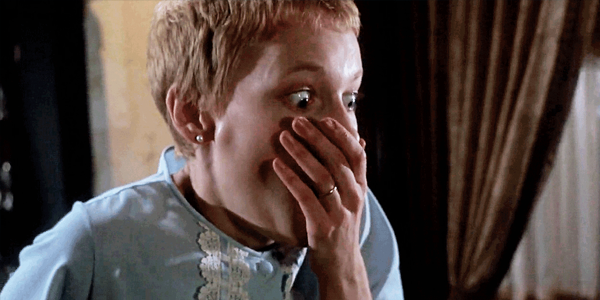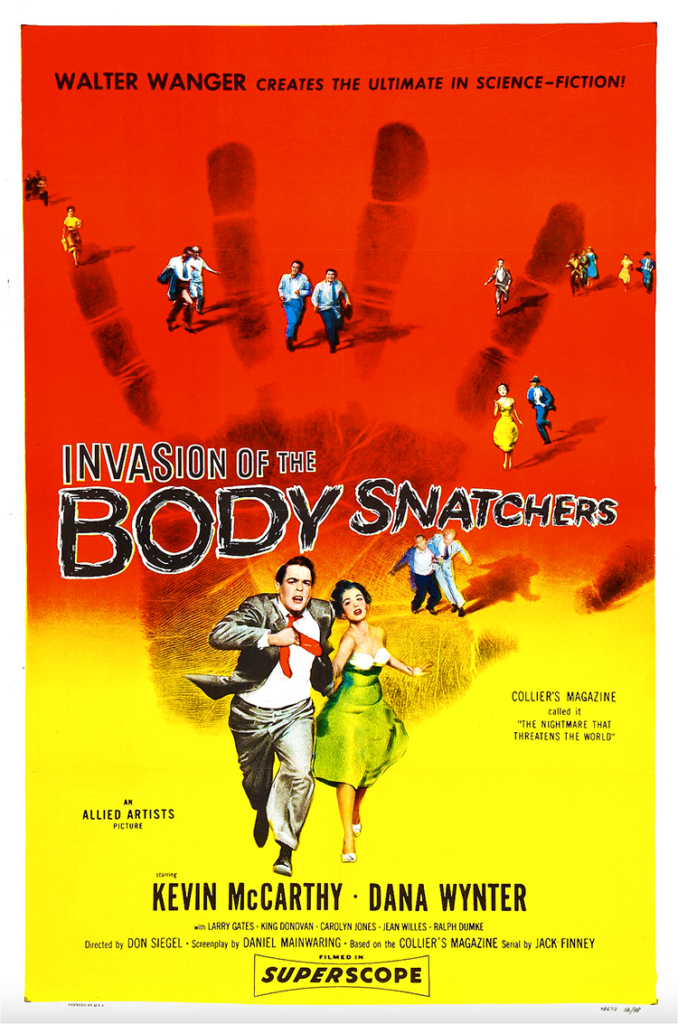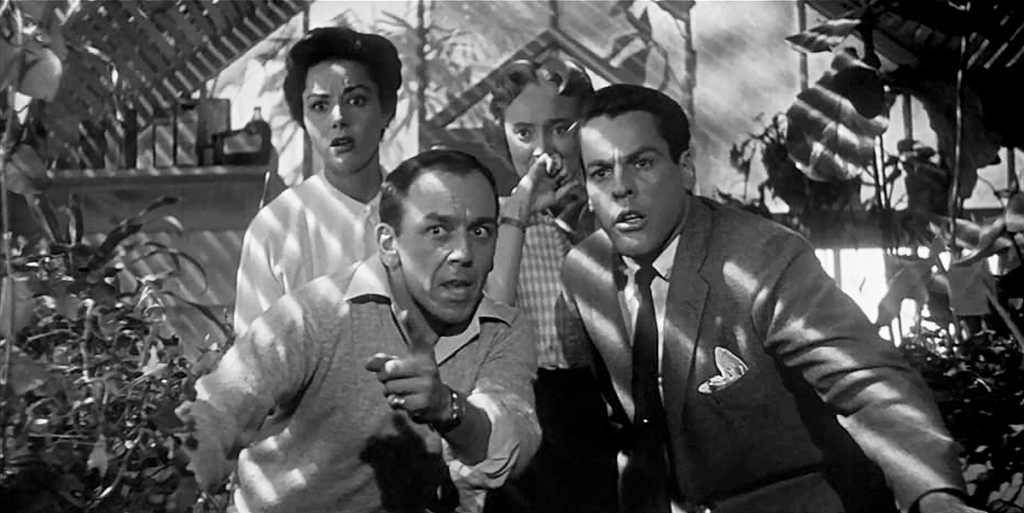
review | Invasion of the Body Snatchers (1956)
related reviews
Sign up for our monthly newsletter
to stay up to date on Cineluxe
The first Body Snatchers movie and the precursor of the modern zombie film, the original still packs a bigger punch than any of its descendants
by Michael Gaughn
October 7, 2022
I create Top 10 lists but never as a permanent enshrinement of anything but more as a snapshot of how I value things at a certain moment in time. To believe you’ve permanently decided on the definitive of anything—let alone believe anything as fluid and zeitgeist-driven as movies can be correlated in any meaningful way—is pure hubris, and to etch your choices in stone is to essentially embalm, not appreciate, them, like pinning butterflies to a board. All of which is to say that I once had the original, 1956 Invasion of the Body Snatchers in my No. 1 slot. That troubled me a lot at the time but it also felt somehow right.
I don’t know if I would ever put it back at No. 1 but it still feels somehow right. If there’s an inherent value in a piece of pop cinema being able to both capture the angst of an era and use it as a springboard to perfectly project the trajectory of the culture, then Body Snatchers has that, and in spades. The film was too easily dismissed at the time and subsequently as an expression of Red Scare paranoia. It’s not. It’s a low-budget B-movie depiction of the loss of self, or soul—depending on how you want to parse that—uncannily prescient, and done with a power that lends it a continuing relevance it never would have achieved as an A-list project.
I can’t think of another movie that’s done a better job of portraying that fatal pivot in the culture, nor any that come close to it that approach the subject with as much restraint. That restraint compresses the film’s energy, allowing it to resonate just as strongly (more so?) 66 years on, eclipsing all the remakes, off-shoots, and imitators.
I’m not saying Body Snatchers is what would traditionally be considered a masterpiece, in the technical or even the cinematic sense. At the end of the day, it’s still a B movie, with all the basic flaws that come with pandering to that segment of the audience. But it captures something tremendously important, and captures it better than could have been done if it had been put in more accomplished hands. Its B-movie weaknesses are its virtues, forcing its makers to keep the action intimate and the practical effects modest. And the material seems to need the rough energy, the inherent luridness, that comes with aiming for the cheap seats.
The wraparound—tacked on after the fact because the ending was considered too depressing—remains pointless. The film means nothing, packs no punch, if it’s not hopeless, and to enjoy it (in the troubling sense of the word) you have to edit those bookends out in your mind as you watch it. (But there is a certain giddy frisson to seeing the ubiquitous Whit Bissell, the embodiment of bland, benign mid-‘50s authority; Richard “The Dick Van Dyke Show” Deacon; and the hit man who tried to rub out Burt Lancaster in Criss Cross all being called up for active duty to do a couple of completely unnecessary scenes.)
The movie’s Santa Mira is a typical small American city the way Santa Rosa is in Shadow of a Doubt, but Body Snatchers doesn’t waste any time establishing that because, like in The Miracle of Morgan’s Creek, that almost mythic sense of place was so thoroughly understood, was such a shared and reassuring cultural reference point, that any kind of stage-setting would have been unnecessary and just slowed everything down. Unlike most horror movies and thrillers, Body Snatchers jumps right into laying down its “there’s something wrong here” vibe, which makes it infinitely creepier.
From that opening scene on, the film is breathless—but without once seeming to break a sweat. The mood deepens, the shadows thicken, and the thrills are placed as quietly and cunningly as the seed pods, building to an overwhelming sense of inevitability and dread. There’s no big rush to get to a big effect—the first developing pod doesn’t even appear until the halfway point—and yet no scene lingers. Each says exactly what it needs to say and moves on.
Body Snatchers is really a chamber drama with a perverse sense of humor and the occasional practical effect. Everything is grounded in basic human interaction and kept plausible for as long as possible. It never overreaches. For all the cheesy horror makeup and monster suits with zippers in ‘50s films, the effects here remain remarkably convincing, which has a lot to do with the film’s staying power.
That’s not to say there aren’t problems—it’s a B movie, so it’s brimming with problems. Dana Wynter’s entrance is so badly handled it always gets a laugh, you have your pick of cringe-worthy lines, and poor Kevin McCarthy seems to be in over his head throughout. And then there’s the constant churning and over-insistence of the Carmen Dragon score. But the premise is so strong and the film clings to it so tenaciously and develops it so powerfully that the fumbles almost feel like grace notes.
The original Invasion of the Body Snatchers spawned the modern zombie movie—although not in the ways you’d think. The characters recoil upon discovering their pod doubles not because they’re alien but because they’re so much like themselves. Similarly, zombie movies aren’t about the undead being other—they’re one of us, just a too easily taken step away from who we are now. Depending on your angle of approach, Body Snatchers can induce an even bigger shudder today than it did in its time because it’s a pretty accurate depiction of who we once were and who we’ve, c. 1985, become.
Michael Gaughn—The Absolute Sound, The Perfect Vision, Wideband, Stereo Review, Sound & Vision, The Rayva Roundtable, marketing, product design, some theater designs, a couple TV shows, some commercials, and now this.
© 2025 Cineluxe LLC


